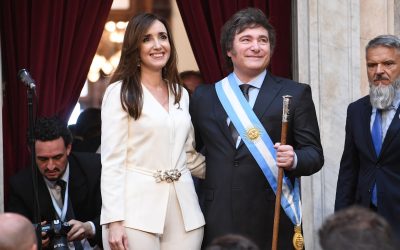Venezuela’s collectivist dictator Hugo Chavez is surprised by the fact that there are shortages in Venezuela. Despite the fact that the science of economics has been explaining it for over two hundred years, he didn’t know that inflation of the money supply serves to make prices rise. Again, despite the centuries-long teachings of economics, he didn’t know that when the rise in prices is prohibited, the effect of inflation is to increase the quantities of goods that people want to buy, but not the quantities available for sale, and thus results in precisely the situation that is described as a shortage, i.e., people attempting to buy more of a good than is available for sale.
Chavez doesn’t know, and probably doesn’t want to know, that if he wants to end the shortages, all he has to do is abolish the price controls. The rise in prices will serve to reduce the quantities of the various goods demanded to a point within the limit of the supplies available. He doesn’t know and probably doesn’t want to know that if he then wants the rise in prices to stop, all he need do is stop the inflation of the Venezuelan money supply.
Finally, Chavez doesn’t know, and undoubtedly doesn’t want to know, that if he would then want prices actually to fall, and for goods to become more and more affordable by more and more of his countrymen, what he would need to do is make a 180-degree turn in the rest of his policies. What this means is that he would have to replace his policy of socialization/nationalization with privatization, and his policy of ever increasing regulation and controls with economic freedom. These are the polices that would provide the incentives and opportunity to rapidly increase production and thus make goods more and more abundant and thus lower-and-lower-priced and ever more affordable.
But all of this is way too much to expect. Because this is, after all, the same Hugo Chavez who apparently slept through the collapse of the Soviet Union and of socialism almost everywhere in the world but Cuba and North Korea, where it’s still maintained by dictatorship in the face of starvation. As such, he’s a man who gives new meaning to the expression “out of it”—he’s so far out of it, so incredibly ignorant, that one may wonder what century he’s in and what planet he’s on.
What stops the antics of this collectivist throwback from being laughable is the fact that many people are suffering from them and soon will probably suffer a lot more. Large numbers of Venezuelans may even be killed before this buffoon leaves office.
To learn about every aspect of the case for capitalism, read my Capitalism: A Treatise on Economics. Originally published at the blog of George Reisman. Copyright 2019 George Reisman. All rights reserved.




